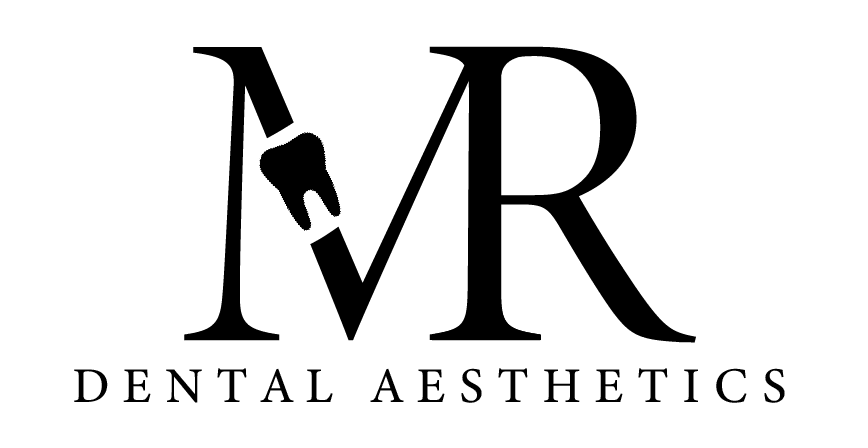Maintaining your oral health isn’t just about having a pretty smile; it’s also about ensuring the well-being of your entire body. Research consistently shows that oral health is closely linked to overall health, with poor oral hygiene contributing to various systemic diseases such as heart disease, diabetes, and respiratory infections. When necessary, it’s crucial to receive regular dental care, including oral surgery.
Whether you need a routine extraction or a more complex procedure like dental implants or maxillofacial surgery, understanding what to expect before, during, and after your oral surgery can alleviate anxiety and promote a smooth recovery. In this blog, we’ll cover everything you need to know about preparing for dental surgery.
WHAT IS ORAL SURGERY?
Oral surgery includes a variety of procedures designed to address ailments affecting the teeth and jaw. Specialized oral surgeons, like Dr. Rashti, possess expertise in various aspects of dental and facial care and cater to individual patient needs with precision. These professionals administer different forms of anesthesia to ensure patient comfort and safety throughout the surgical process.
Oral surgery includes various interventions tailored to specific dental and jaw-related concerns. These include preserving teeth through root canal therapy, which involves removing inflamed or infected tooth roots, extracting wisdom teeth, including those that are impacted and causing discomfort or alignment issues, and restoring lost tissue.
It also includes procedures like replacing missing teeth with dental implants, repairing dental and jaw injuries sustained from accidents or traumas, and addressing facial and jaw conditions through specialized maxillofacial surgery techniques.
ORAL SURGERY: WHAT TO EXPECT
While many oral surgery procedures are minimally invasive and can be performed outpatient, it’s essential to recognize that they are serious medical procedures.
Before oral surgery, your dental team will provide detailed pre-operative instructions, including fasting guidelines, medication management, and necessary medical assessments. Dr. Rashti will discuss anesthesia options, such as local anesthesia, conscious sedation, intravenous sedation, or general anesthesia, providing detailed information about their effects. Dr. Rashti will ensure your comfort and safety while closely monitoring your vital signs during the procedure.
After surgery, you’ll receive post-operative instructions for pain management, wound care, dietary restrictions, and activity limitations to promote healing and minimize complications. Recovery may vary depending on the procedure’s complexity, requiring rest, hydration, and nutrition prioritization.
WHAT TO DO BEFORE ORAL SURGERY
Preparing for a dental procedure can help make the recovery process seamless and stress-free for you and your loved ones. Here’s how to prepare for oral surgery the right way.
- Notify Your Doctor of Any Health Concerns
Preparing for dental surgery is critical for success. Dr. Rashti must be fully informed about your medical history, including any pre-existing conditions, allergies, or medications you’re taking. This information helps her tailor your treatment plan and minimize the risk of potential complications during and after surgery.
- Schedule a Ride
Depending on the type of anesthesia you’ll receive, such as IV sedation, you may not be in a condition to drive yourself home after surgery. Arrange for a reliable mode of transportation to and from the facility to ensure your safety and comfort. Consider asking a trusted friend or family member to accompany you for added support.
- Avoid Food or Drink Before Sedation
To prep for oral surgery, you may be required to fast for a period of time. This typically involves abstaining from food and drink, including water, for 8-12 hours prior to your scheduled appointment. Following fasting guidelines reduces the risk of aspiration during surgery and contributes to a smoother recovery process.
- Wear Comfortable Clothes
On the day of your surgery, opt for loose, comfortable clothing that allows for ease of movement and promotes relaxation. Avoid wearing tight-fitting or restrictive attire, as it may cause discomfort during and after the procedure. Remember, comfort is key to a stress-free experience.
- Practice Breathwork
Pre-surgery anxiety is a common experience for many individuals facing oral surgery or any medical procedure. It’s natural to feel nervous or apprehensive about undergoing surgery, but managing these feelings is crucial for ensuring a smoother experience. One effective technique for coping with pre-surgery jitters is practicing breathwork, also known as controlled breathing or deep breathing exercises.
That involves intentionally focusing on your breath, regulating its rhythm and depth to induce a state of calmness and relaxation. By directing attention to the breath, individuals can shift their focus away from anxious thoughts and sensations, promoting a sense of inner peace and tranquility.
- Have Your House Pre-Stocked
An important step in your oral surgery prep is to create a comfortable and conducive environment for your recovery at home. Purchase soft foods that are easy to eat, such as soups, yogurts, and smoothies, to avoid any unnecessary discomfort while chewing. Additionally, have ice packs on hand to reduce swelling and alleviate post-operative pain. Don’t forget to fill any prescribed medications beforehand, ensuring they’re readily available when needed.
- Follow Pre- and Post-Op Instructions
Dr. Rashti will provide you with specific pre-operative guidelines to follow in the days leading up to your surgery. These may include instructions regarding medication usage, dietary restrictions, and oral hygiene practices. Similarly, closely follow any post-operative care instructions, including medication schedules, wound care protocols, and follow-up appointments. Your surgical team may also advise you on how to prepare for the dentist and what medical records they will need before the appointment. Following these instructions promotes optimal healing and reduces the risk of complications.
WHAT NOT TO DO BEFORE ORAL SURGERY
As you prepare for your upcoming oral surgery, it’s essential to be aware of certain actions or habits that can potentially interfere with the success of your procedure or compromise your recovery. Here’s a quick list of things to avoid before oral surgery:
- Smoking
Tobacco use, including smoking cigarettes or other tobacco products, can significantly impair the healing process and increase the risk of complications after oral surgery.
- Alcohol Consumption
Alcohol can interfere with the effectiveness of anesthesia and pain medications, leading to complications during and after surgery. Additionally, it can exacerbate bleeding and impair wound healing.
- Eating or Drinking Before the Fasting Period
Following Dr. Rashti’s fasting guidelines are crucial to minimize the risk of aspiration during surgery and ensure your safety. Eating or drinking anything, including water, within the specified fasting period can increase the likelihood of complications during anesthesia.
- Ignoring Pre-Operative Instructions
Adhere diligently to all pre-operative instructions provided by your doctor to ensure the best possible outcomes.
- Overexertion
Engaging in strenuous physical activities or heavy lifting in the days before your oral surgery can increase the risk of complications, such as bleeding and swelling. It’s important to avoid overexerting yourself and prioritize rest and relaxation to conserve energy and promote a smoother recovery.
FAQS ABOUT ORAL SURGERY
Can you eat before oral surgery?
It’s typically recommended to fast for 8-12 hours before oral surgery, including abstaining from food and drink. Following fasting guidelines helps minimize the risk of aspiration during surgery and ensures your safety under anesthesia. However, specific fasting instructions may vary depending on the type of procedure and anesthesia administered. Be sure to follow Dr. Rashti’s guidance regarding fasting to optimize the success of your surgery.
Can you drink water before oral surgery?
Similar to eating, avoiding drinking water within the fasting period before oral surgery is generally advised. Again, adhering to fasting guidelines helps reduce the risk of complications during surgery and supports a smooth recovery process. Dr. Rashti will provide specific fluid intake instructions before your procedure. If you have any concerns or questions about hydration before surgery, don’t hesitate to consult with your doctor for clarification.
How should I prepare my home for recovery?
Creating a comfortable and conducive environment for recovery is essential to promote healing and minimize discomfort after oral surgery. Stock up on soft foods that are easy to eat, such as soups, yogurts, and smoothies, to accommodate any dietary restrictions following surgery.
Should I stop taking medications before the procedure?
Discussing all medications you’re currently taking with Dr. Rashti before your procedure is crucial. She will provide specific guidance regarding which medications to continue or discontinue before surgery based on factors like potential interactions with anesthesia and their effects on bleeding and healing. Never stop taking prescribed medications without consulting your primary healthcare provider, as abruptly discontinuing certain medications can have adverse effects on your health.
What should I do if I’m feeling anxious about the surgery?
Feeling anxious before oral surgery is entirely normal and understandable. Openly communicate your concerns with Dr. Rashti, who can provide reassurance and support to alleviate your anxiety, especially for phobic patients. She can offer relaxation techniques to help you feel more comfortable and relaxed before your procedure.
TAKE CONTROL OF YOUR ORAL HEALTH AT MR DENTAL AESTHETICS
At MR Aesthetics, we understand the significance of treating each patient as an individual with unique needs and concerns. Dr. Rashti’s patient-centric approach ensures that your well-being is always our top priority, from your initial consultation to your final follow-up appointment. She sees each patient one at a time to provide the most personalized and compassionate care.
By emphasizing health first and cosmetic issues second, we strive to provide comprehensive care that addresses the aesthetic aspects of your smile but also the underlying health and functionality issues that may affect your overall well-being. Whether you’re considering dental implants, full mouth reconstruction, or any other oral surgery procedures, rest assured that you’re in capable hands at MR Dental Aesthetics.
Take control of your dental health today by scheduling a consultation with one of the top Beverly Hills cosmetic dentists. Let us help you achieve the healthy, beautiful smile you deserve. Contact MR Dental Aesthetics and schedule your appointment today!

